However, many Vietnamese businesses, especially small and medium-sized enterprises, are currently facing difficulties in accessing ESG standards and green transformation. Implementing this transformation requires not only resources, but also consensus from leaders and a long-term, synchronous strategy.
Businesses face many difficulties

According to the 2024 ESG Practice Assessment Report, of more than 1,000 businesses participating in the survey, 39% of Vietnamese businesses have never heard of ESG and 62% of businesses do not clearly understand regulations and policies related to ESG and sustainable business.
This shows that there is still a big gap between Vietnamese enterprises and the global sustainable development trend. FPT Digital Deputy General Director Le Hung Cuong commented that many Vietnamese enterprises, especially small and medium enterprises, are currently facing difficulties in accessing ESG standards and green transformation.
Director of the Office of Business for Sustainable Development (Vietnam Federation of Commerce and Industry - VCCI) Nguyen Tien Huy said that Vietnam's sustainable development policies in recent years have had many positive changes, demonstrated through the integration of sustainable development goals into national strategies, promoting green economy , circular economy and inclusive growth.
Many policies related to carbon emission reduction, renewable energy, digital transformation and sustainable agriculture have been issued, creating a foundation for businesses to develop according to ESG. However, the actual impact is still modest, especially for the small and medium-sized enterprise sector.
“One of the biggest bottlenecks is access to capital. Although many green credit programs have been announced, loan conditions are still complicated, requiring financial transparency and ESG standards that most small and medium-sized enterprises do not have the capacity to meet,” said Mr. Nguyen Tien Huy.
In addition, small and medium-sized enterprises also have difficulty accessing clean and modern technology due to high investment costs and lack of information about suitable solutions. ESG standards are still a new concept for many businesses, especially at the management level, causing slow or superficial application.
Agreeing with this view, Vice President and General Secretary of the Hanoi Association of Small and Medium Enterprises Mac Quoc Anh presented his perspective on the current situation of ESG in the business community with four bright spots emerging. Firstly, green credit is growing by 22% compared to the same period last year. Secondly, international capital flows into ESG, typically the commitment of 210 million USD from the International Finance Corporation, are also creating new momentum. Thirdly, the legal framework has become clearer thanks to circulars and instructions from the State Bank. Fourthly, business awareness of ESG is improving, especially in accessing foreign markets.
However, Mr. Mac Quoc Anh also pointed out many major bottlenecks. That is, only 4.5% of green credit has been disbursed. Small and medium enterprises have difficulty accessing it due to lack of collateral, non-preferential interest rates, and unfamiliar ESG standards. Up to 60% of small businesses do not know where to register for support. Many businesses do not even know what ESG is and it is even more difficult to retain personnel with expertise in this field.
Care and support businesses
To effectively balance economic growth and sustainable development in the context of increasing ESG pressure and green transformation, Vice President and General Secretary of the Hanoi Association of Small and Medium Enterprises Mac Quoc Anh proposed 5 groups of solutions. Specifically: Establishing a green credit guarantee mechanism from 30% to 50%; shortening the green criteria set, learning from international models; promoting digitalization of business data; tax incentives for the first 2-4 years for green businesses; building a network of ESG consultants along the value chain.
Nguyen Tien Huy, Director of the Vietnam Chamber of Commerce and Industry (VCCI), said that Vietnam needs to prioritize a number of strategic, systemic solutions. First, it is necessary to reshape the growth model towards quality, innovation and sustainability instead of relying solely on resource exploitation, cheap labor and processing exports. In particular, green economy, circular economy, high-tech agriculture and clean industry need to be identified as key drivers.
Next, the State needs to invest heavily in green transformation and digitalization infrastructure, including expanding renewable energy, upgrading smart transportation systems, modernizing waste treatment, and applying digital technology to measure and manage ESG data. Along with that, Vietnam needs to build a synchronous national ESG policy framework, creating a foundation and guidance for businesses to implement, report, and receive support according to a specific roadmap.
Another important solution is to develop green human resources, through retraining, upgrading skills for existing workers and integrating sustainable development content into education. At the same time, it is necessary to innovate the financial system towards promoting green credit, sustainable bonds and ESG investment funds to create resources for businesses.
Finally, enhancing institutional capacity and law enforcement will be the lever to ensure consistency, transparency and effectiveness of all policies.
"With synchronous solutions, Vietnam can both maintain economic growth momentum and shift to a truly sustainable and highly adaptable development model in the future," Mr. Nguyen Tien Huy affirmed.
Source: https://hanoimoi.vn/ho-tro-doanh-nghiep-phat-trien-ben-vung-can-giai-phap-chien-luoc-701138.html


![[Photo] A delegation of 100 journalists from the Vietnam Journalists Association visits the soldiers and people of Truong Sa island district.](https://vphoto.vietnam.vn/thumb/1200x675/vietnam/resource/IMAGE/2025/5/30/0984a986227d4e988177f560d2e1563e)
![[Photo] Journalists moved to tears at the Memorial Service for the soldiers who died in Gac Ma](https://vphoto.vietnam.vn/thumb/1200x675/vietnam/resource/IMAGE/2025/5/30/9454613a55c54c16bf8c0efa51883456)
![[Photo] National Conference "100 years of Vietnamese Revolutionary Press accompanying the glorious cause of the Party and the nation"](https://vphoto.vietnam.vn/thumb/1200x675/vietnam/resource/IMAGE/2025/5/30/1cf6cd5c8a934ebfa347028dcb08358c)

![[Photo] General Secretary To Lam receives Chief of the Central Office of the Lao People's Revolutionary Party](https://vphoto.vietnam.vn/thumb/1200x675/vietnam/resource/IMAGE/2025/5/30/140435f4b39d4599a3d17975dfb444c5)














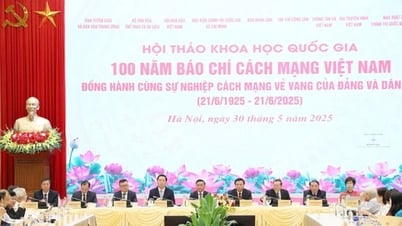
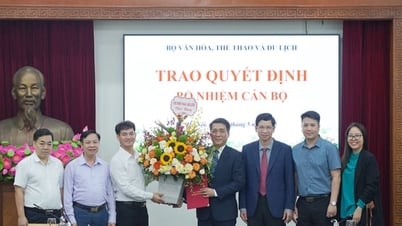
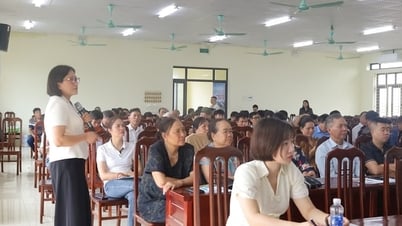

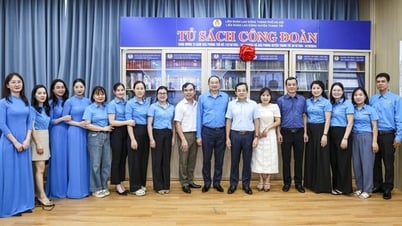





































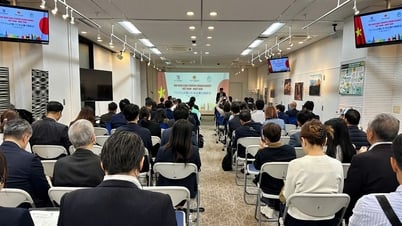



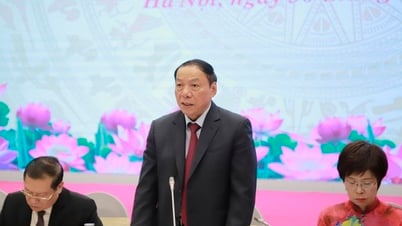



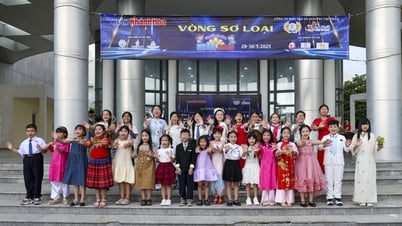



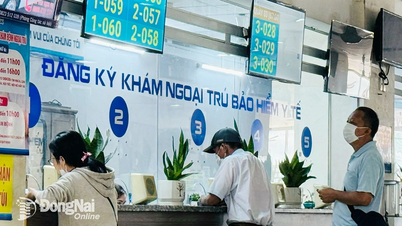














Comment (0)